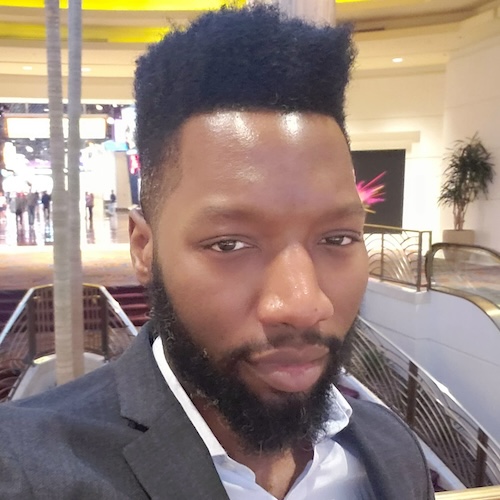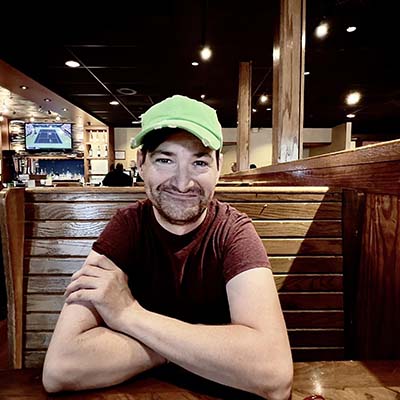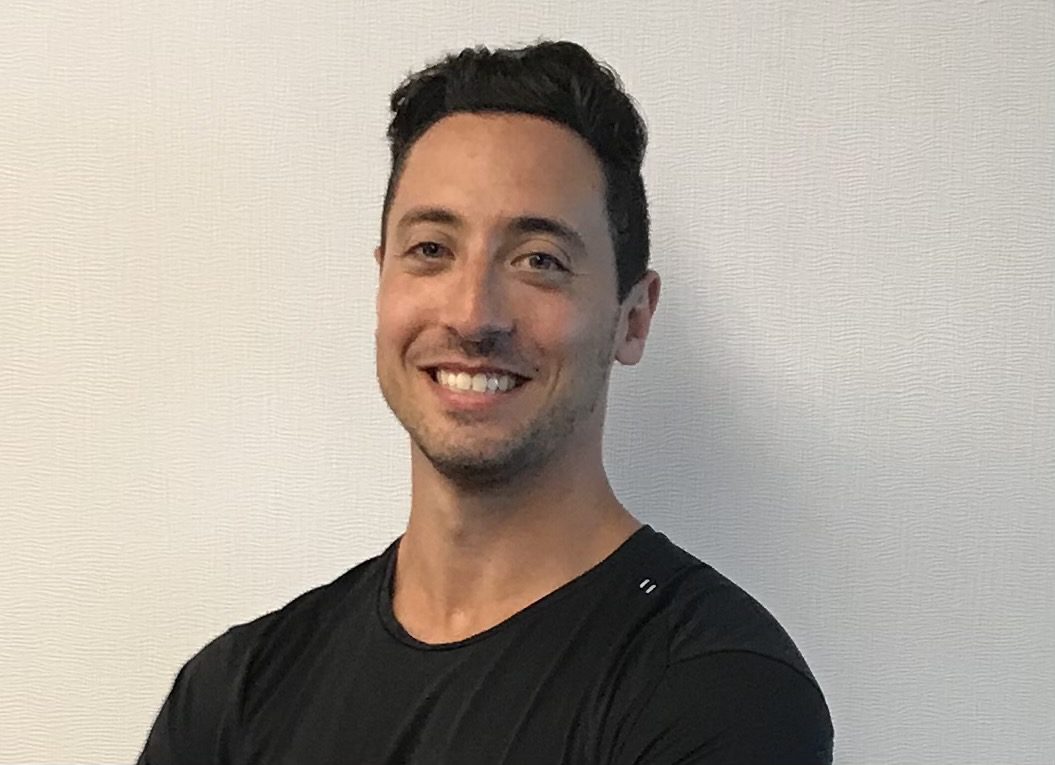The Rule of Law Is Not Enough
The Trial
n
I was called for jury duty three times in two years always in spring or fall consulting busy-season.
n
u201cSo just when would be a good time for you, Mr. Culler.u201d
n
u201cIu2019m free the three days before Thanksgiving, your honor.u201d
n
u201cFine. The clerk will schedule you. Next.u201d
n
At the county courthouse at 8:00 a.m. on a November Monday, I was impaneled as an alternate on a trial for which jury selection completed Friday. The same judge welcomed me by name and released another juror, to u201cprepare Thanksgiving dinneru201d and directed the plaintiffu2019s attorney to begin his opening statement. u201cTry to be brief, counselor.u201d He wasnu2019t.
n
It was a civil trial, a dispute between two neighbors. The plaintiffu2019s attorney was fiery, u201c. . . will show that the defendant, Mr. Charles T____, did through negligence and willfully malicious intent cause the injury of my client, Mr. Robert J_____. . . such that he is no longer able to earn his living. . . .u201c
n
The defense attorney was briefer. He said there was no negligence and that the defendant u201ctook actions to prevent the plaintiff from annexing his property and that any injuries sustained by the plaintiff were caused his own actions.u201d
n
The evidence was presented by both sides over the next two days.
n
The two neighbors lived in the hills outside the city. Bobu2019s family lived there for generations and his father sold Charley the land on which he built his house. Bob was a plasterer, Charley had a landscaping business.
n
Bob asked Charley if it would be OK if he parked a car on the flat space at the bottom of Charleyu2019s property when they had guests. Charley agreed. When Charley didnu2019t mow the spot, Bob grew impatient and mowed it. Then Bob paved the parking spot on Charleyu2019s land, without asking Charley. Acrimony grew. Angry words flew between Bob and Charley and their spouses. There were u201calways cars parked thereu201d making it hard for Charley turn intro his driveway with his landscaping truck.
n
One day Charley came home to find that Bob had erected a basketball hoop on two 6u201dx 6u201d posts cemented into the ground. Charleyu2019s driveway was blocked by cars owned by Bobu2019s sonu2019s friends who were annoyed that Charley was interrupting their three-on-three basketball game. Charley exchanged rude words with the boys and told Bob to u201cTake that hoop down and never park there again.u201d
n
Days went by, more rude words were exchanged, but no action taken and b-ball games lasted until late at night. Someone set up lights on the u201ccourt.u201d
n
Charleyu2019s chainsaw cut the hoop stand at ground level; he moved it to Bobu2019s property and then dumped a four foot high pile of dirt and stones on the asphalt on his property, eight feet from the road rendering the space (and u201ccourtu2019) unusable. More inappropriate language was u00a0exchanged.
n
About a week later, Charley answered the door to a policeman who informed him there had been an accident on his property. He came down to find Bob standing next to his car the front two wheels of which were on the pile of dirt and stones. Much swear-laden yelling ensued. Bob wanted to press charges because Charley had u201ccreated a safety hazard.u201d Officer D____u2019s report described the pile of dirt as u201ccompletely off the roadu201d and concluded that Bob u201ceither lost control of his vehicle or drove off the road on purpose.u201d The report concluded there was no crime, nor safety hazard. The dirt pile was visible for 100 yards. Someone took pictures of the approach, both driveways, u00a0and the car on the dirt pile with a measuring tape showing the distance from the road. The officer said he u201cencouraged the neighbors to resolve their differences without involving law enforcement in the future.u201d
n
Bob sued Charley for one million dollars for injuries, pain and suffering caused by Charleyu2019s negligence and malicious intent. Testimony took two days.
n
Tuesday at 5:00 p.m. the judge charged the jury to begin deliberations that evening because of the holiday. Dinner would be served at 6:00 p.m. He reminded the jury that our job was to follow the law. Was there negligence? Was a safety hazard created?
n
u201cThereu2019s been some emotional testimony, but there is also documentary evidence, police reports, deed plots and photographs. Perhaps you can reach a verdict this evening and have tomorrow free,u201du00a0 That was optimistic. We the jury were undecided when they sent us home after 9:00 p.m.
n
The Deliberations
n
I used to tell this story being judgmental about some fellow jurorsu00a0 who were influenced by the emotions in the case.
n
u201cBob really hurt his shoulder. He canu2019t do work over his head and ceiling work is more than fifty percent of his work as a plasterer.u201d
n
u201cThere is no way I would let anyone speak to my kid like that. Charleyu2019s lucky it wasnu2019t me.u201d
n
Some didnu2019t understand the law. u201cLetu2019s fine them both $10 and tell them to be better neighbors.u201d
n
u201cThat will a hung jury and theyu2019ll have to try the case all over again.u201d
n
u201cWhy donu2019t we find for the plaintiff, but only award him $1.u201d
n
u201cBecause on appeal the verdict of negligence will stand, and only the amount will be appealed, and if there was negligence, then $1 is not a reasonable award.u201d
n
At 5:00 p.m. on Wednesday, we the jury agreed that the documentary evidence, photos and police report indicated that the pile of dirt was off the road, on Charleyu2019s own property. In spite of our misgivings about disrespect and bad language, Charley could legally place the dirt there; there was no negligence. We found for the defense.
n
The plaintiffu2019s lawyer requested to u201cpoll the jury,u201d ask us each how we voted and why, and I was momentarily petrified, because I thought our fragile consensus had too much to do with the holiday. The judge denied his request and sent us home.
n
Lessons Learned
n
At the time, my lesson was that I never wanted to rely upon u201ca jury of my peers.u201d Too many on the jury didnu2019t understand the law, were swayed by emotion, and felt pressured by the press of the holiday to think clearly or make good decisions. I felt like Henry Fonda in the film u201cTwelve Angry Men,u201d the 1957 Sidney Lumet film, which is arguably the best example of one man using reason to overcome emotion and ensure that justice prevails.
n
Yeah, but. . .
n
Feelings are important especially when considering issues of intent and malice afore-thought.u00a0 Charley did have malice. Bob did hurt himself, at least, if we believe doctoru2019s report. I still believe we made the right decision.
n
Upon Further Deliberation
n
Thirty-five years later, I have been distressed wondering about the effects of the wars the world and I revisited this case, because thatu2019s what Bob and Charley had – a war, a small war perhaps, and as far as I know no one lost his life – but a war, none-the-less.
n
I donu2019t know what happened after the trial with Bob, Charley, and their families, but I donu2019t imagine that their relationship improved easily. I doubt that the legal remedy led to reconciliation and bonhomie.
n
One man felt ownership and protectiveness of his land. One said u201cmy father owned it long before you got here. Your land is my familyu2019s Legacy.u201d
n
One felt a favor had been abused. The other said, u201cyou werenu2019t using it and besides I improved it.u201d The favor had become a given, expected, deserved.
n
Both felt angry and disrespected. Words hurt and destruction of property hurts. Injuries are long-remembered. Bob talked bitterly of his sonu2019s humiliation being called names in front of friends.
n
There was recriminatory testimony, which started with u201cThey always. . .u00a0 or They never. . . .u201d
n
The law didnu2019t really serve either family. True, Charley won that case and he avoided a million dollar judgement, but the conflict was likely to go underground, beneath the visibility of the law.
n
Some of my early work as a consultant was in intergroup conflict resolution. Rules, what should happen, never resolved conflict. What worked was if each party could listen to the other side, and be able to state the other partyu2019s point of view and the feelings associated with it.
n
Then the parties could establish accepted behavior and a grievance process when things went awry. Even that didnu2019t always work, but it was a start.
n
The court could have mediated conflict resolution with Charley and Bob, but that really isnu2019t the role of the court. Family and friends could have an intervention. But only Charley and Bob could commit to make it work.
n
I am unsure what it would take for Bob and Charley. What about the rest of us?
“,”tablet”:”
The Trial
n
I was called for jury duty three times in two years always in spring or fall consulting busy-season.
n
u201cSo just when would be a good time for you, Mr. Culler.u201d
n
u201cIu2019m free the three days before Thanksgiving, your honor.u201d
n
u201cFine. The clerk will schedule you. Next.u201d
n
At the county courthouse at 8:00 a.m. on a November Monday, I was impaneled as an alternate on a trial for which jury selection completed Friday. The same judge welcomed me by name and released another juror, to u201cprepare Thanksgiving dinneru201d and directed the plaintiffu2019s attorney to begin his opening statement. u201cTry to be brief, counselor.u201d He wasnu2019t.
n
It was a civil trial, a dispute between two neighbors. The plaintiffu2019s attorney was fiery, u201c. . . will show that the defendant, Mr. Charles T____, did through negligence and willfully malicious intent cause the injury of my client, Mr. Robert J_____. . . such that he is no longer able to earn his living. . . .u201c
n
The defense attorney was briefer. He said there was no negligence and that the defendant u201ctook actions to prevent the plaintiff from annexing his property and that any injuries sustained by the plaintiff were caused his own actions.u201d
n
The evidence was presented by both sides over the next two days.
n
The two neighbors lived in the hills outside the city. Bobu2019s family lived there for generations and his father sold Charley the land on which he built his house. Bob was a plasterer, Charley had a landscaping business.
n
Bob asked Charley if it would be OK if he parked a car on the flat space at the bottom of Charleyu2019s property when they had guests. Charley agreed. When Charley didnu2019t mow the spot, Bob grew impatient and mowed it. Then Bob paved the parking spot on Charleyu2019s land, without asking Charley. Acrimony grew. Angry words flew between Bob and Charley and their spouses. There were u201calways cars parked thereu201d making it hard for Charley turn intro his driveway with his landscaping truck.
n
One day Charley came home to find that Bob had erected a basketball hoop on two 6u201dx 6u201d posts cemented into the ground. Charleyu2019s driveway was blocked by cars owned by Bobu2019s sonu2019s friends who were annoyed that Charley was interrupting their three-on-three basketball game. Charley exchanged rude words with the boys and told Bob to u201cTake that hoop down and never park there again.u201d
n
Days went by, more rude words were exchanged, but no action taken and b-ball games lasted until late at night. Someone set up lights on the u201ccourt.u201d
n
Charleyu2019s chainsaw cut the hoop stand at ground level; he moved it to Bobu2019s property and then dumped a four foot high pile of dirt and stones on the asphalt on his property, eight feet from the road rendering the space (and u201ccourtu2019) unusable. More inappropriate language was exchanged.
n
About a week later, Charley answered the door to a policeman who informed him there had been an accident on his property. He came down to find Bob standing next to his car the front two wheels of which were on the pile of dirt and stones. Much swear-laden yelling ensued. Bob wanted to press charges because Charley had u201ccreated a safety hazard.u201d Officer D____u2019s report described the pile of dirt as u201ccompletely off the roadu201d and concluded that Bob u201ceither lost control of his vehicle or drove off the road on purpose.u201d The report concluded there was no crime, nor safety hazard. The dirt pile was visible for 100 yards. Someone took pictures of the approach, both driveways, and the car on the dirt pile with a measuring tape showing the distance from the road. The officer said he u201cencouraged the neighbors to resolve their differences without involving law enforcement in the future.u201d
n
Bob sued Charley for one million dollars for injuries, pain and suffering caused by Charleyu2019s negligence and malicious intent. Testimony took two days.
n
Tuesday at 5:00 p.m. the judge charged the jury to begin deliberations that evening because of the holiday. Dinner would be served at 6:00 p.m. He reminded the jury that our job was to follow the law. Was there negligence? Was a safety hazard created?
n
u201cThereu2019s been some emotional testimony, but there is also documentary evidence, police reports, deed plots and photographs. Perhaps you can reach a verdict this evening and have tomorrow free,u201d That was optimistic. We the jury were undecided when they sent us home after 9:00 p.m.
n
The Deliberations
n
I used to tell this story being judgmental about some fellow jurors who were influenced by the emotions in the case.
n
u201cBob really hurt his shoulder. He canu2019t do work over his head and ceiling work is more than fifty percent of his work as a plasterer.u201d
n
u201cThere is no way I would let anyone speak to my kid like that. Charleyu2019s lucky it wasnu2019t me.u201d
n
Some didnu2019t understand the law. u201cLetu2019s fine them both $10 and tell them to be better neighbors.u201d
n
u201cThat will a hung jury and theyu2019ll have to try the case all over again.u201d
n
u201cWhy donu2019t we find for the plaintiff, but only award him $1.u201d
n
u201cBecause on appeal the verdict of negligence will stand, and only the amount will be appealed, and if there was negligence, then $1 is not a reasonable award.u201d
n
At 5:00 p.m. on Wednesday, we the jury agreed that the documentary evidence, photos and police report indicated that the pile of dirt was off the road, on Charleyu2019s own property. In spite of our misgivings about disrespect and bad language, Charley could legally place the dirt there; there was no negligence. We found for the defense.
n
The plaintiffu2019s lawyer requested to u201cpoll the jury,u201d ask us each how we voted and why, and I was momentarily petrified, because I thought our fragile consensus had too much to do with the holiday. The judge denied his request and sent us home.
n
Lessons Learned
n
At the time, my lesson was that I never wanted to rely upon u201ca jury of my peers.u201d Too many on the jury didnu2019t understand the law, were swayed by emotion, and felt pressured by the press of the holiday to think clearly or make good decisions. I felt like Henry Fonda in the film u201cTwelve Angry Men,u201d the 1957 Sidney Lumet film, which is arguably the best example of one man using reason to overcome emotion and ensure that justice prevails.
n
Yeah, but. . .
n
Feelings are important especially when considering issues of intent and malice afore-thought. Charley did have malice. Bob did hurt himself, at least, if we believe doctoru2019s report. I still believe we made the right decision.
n
Upon Further Deliberation
n
Thirty-five years later, I have been distressed wondering about the effects of the wars the world and I revisited this case, because thatu2019s what Bob and Charley had – a war, a small war perhaps, and as far as I know no one lost his life – but a war, none-the-less.
n
I donu2019t know what happened after the trial with Bob, Charley, and their families, but I donu2019t imagine that their relationship improved easily. I doubt that the legal remedy led to reconciliation and bonhomie.
n
One man felt ownership and protectiveness of his land. One said u201cmy father owned it long before you got here. Your land is my familyu2019s legacy.u201d
n
One felt a favor had been abused. The other said, u201cyou werenu2019t using it and besides I improved it.u201d The favor had become a given, expected, deserved.
n
Both felt angry and disrespected. Words hurt and destruction of property hurts. Injuries are long-remembered. Bob talked bitterly of his sonu2019s humiliation being called names in front of friends.
n
There was recriminatory testimony, which started with u201cThey always. . . or They never. . . .u201d
n
The law didnu2019t really serve either family. True, Charley won that case and he avoided a million dollar judgement, but the conflict was likely to go underground, beneath the visibility of the law.
n
Some of my early work as a consultant was in intergroup conflict resolution. Rules, what should happen, never resolved conflict. What worked was if each party could listen to the other side, and be able to state the other partyu2019s point of view and the feelings associated with it.
n
Then the parties could establish accepted behavior and a grievance process when things went awry. Even that didnu2019t always work, but it was a start.
n
The court could have mediated conflict resolution with Charley and Bob, but that really isnu2019t the role of the court. Family and friends could have an intervention. But only Charley and Bob could commit to make it work.
n
I am unsure what it would take for Bob and Charley. What about the rest of us?
“}},”slug”:”et_pb_text”}” data-et-multi-view-load-tablet-hidden=”true”>
The Trial
I was called for jury duty three times in two years always in spring or fall consulting busy-season.
“So just when would be a good time for you, Mr. Culler.”
“I’m free the three days before Thanksgiving, your honor.”
“Fine. The clerk will schedule you. Next.”
At the county courthouse at 8:00 a.m. on a November Monday, I was impaneled as an alternate on a trial for which jury selection completed Friday. The same judge welcomed me by name and released another juror, to “prepare Thanksgiving dinner” and directed the plaintiff’s attorney to begin his opening statement. “Try to be brief, counselor.” He wasn’t.
It was a civil trial, a dispute between two neighbors. The plaintiff’s attorney was fiery, “. . . will show that the defendant, Mr. Charles T____, did through negligence and willfully malicious intent cause the injury of my client, Mr. Robert J_____. . . such that he is no longer able to earn his living. . . .“
The defense attorney was briefer. He said there was no negligence and that the defendant “took actions to prevent the plaintiff from annexing his property and that any injuries sustained by the plaintiff were caused his own actions.”
The evidence was presented by both sides over the next two days.
The two neighbors lived in the hills outside the city. Bob’s family lived there for generations and his father sold Charley the land on which he built his house. Bob was a plasterer, Charley had a landscaping business.
Bob asked Charley if it would be OK if he parked a car on the flat space at the bottom of Charley’s property when they had guests. Charley agreed. When Charley didn’t mow the spot, Bob grew impatient and mowed it. Then Bob paved the parking spot on Charley’s land, without asking Charley. Acrimony grew. Angry words flew between Bob and Charley and their spouses. There were “always cars parked there” making it hard for Charley turn intro his driveway with his landscaping truck.
One day Charley came home to find that Bob had erected a basketball hoop on two 6”x 6” posts cemented into the ground. Charley’s driveway was blocked by cars owned by Bob’s son’s friends who were annoyed that Charley was interrupting their three-on-three basketball game. Charley exchanged rude words with the boys and told Bob to “Take that hoop down and never park there again.”
Days went by, more rude words were exchanged, but no action taken and b-ball games lasted until late at night. Someone set up lights on the “court.”
Charley’s chainsaw cut the hoop stand at ground level; he moved it to Bob’s property and then dumped a four foot high pile of dirt and stones on the asphalt on his property, eight feet from the road rendering the space (and “court’) unusable. More inappropriate language was exchanged.
About a week later, Charley answered the door to a policeman who informed him there had been an accident on his property. He came down to find Bob standing next to his car the front two wheels of which were on the pile of dirt and stones. Much swear-laden yelling ensued. Bob wanted to press charges because Charley had “created a safety hazard.” Officer D____’s report described the pile of dirt as “completely off the road” and concluded that Bob “either lost control of his vehicle or drove off the road on purpose.” The report concluded there was no crime, nor safety hazard. The dirt pile was visible for 100 yards. Someone took pictures of the approach, both driveways, and the car on the dirt pile with a measuring tape showing the distance from the road. The officer said he “encouraged the neighbors to resolve their differences without involving law enforcement in the future.”
Bob sued Charley for one million dollars for injuries, pain and suffering caused by Charley’s negligence and malicious intent. Testimony took two days.
Tuesday at 5:00 p.m. the judge charged the jury to begin deliberations that evening because of the holiday. Dinner would be served at 6:00 p.m. He reminded the jury that our job was to follow the law. Was there negligence? Was a safety hazard created?
“There’s been some emotional testimony, but there is also documentary evidence, police reports, deed plots and photographs. Perhaps you can reach a verdict this evening and have tomorrow free,” That was optimistic. We the jury were undecided when they sent us home after 9:00 p.m.
The Deliberations
I used to tell this story being judgmental about some fellow jurors who were influenced by the emotions in the case.
“Bob really hurt his shoulder. He can’t do work over his head and ceiling work is more than fifty percent of his work as a plasterer.”
“There is no way I would let anyone speak to my kid like that. Charley’s lucky it wasn’t me.”
Some didn’t understand the law. “Let’s fine them both $10 and tell them to be better neighbors.”
“That will a hung jury and they’ll have to try the case all over again.”
“Why don’t we find for the plaintiff, but only award him $1.”
“Because on appeal the verdict of negligence will stand, and only the amount will be appealed, and if there was negligence, then $1 is not a reasonable award.”
At 5:00 p.m. on Wednesday, we the jury agreed that the documentary evidence, photos and police report indicated that the pile of dirt was off the road, on Charley’s own property. In spite of our misgivings about disrespect and bad language, Charley could legally place the dirt there; there was no negligence. We found for the defense.
The plaintiff’s lawyer requested to “poll the jury,” ask us each how we voted and why, and I was momentarily petrified, because I thought our fragile consensus had too much to do with the holiday. The judge denied his request and sent us home.
Lessons Learned
At the time, my lesson was that I never wanted to rely upon “a jury of my peers.” Too many on the jury didn’t understand the law, were swayed by emotion, and felt pressured by the press of the holiday to think clearly or make good decisions. I felt like Henry Fonda in the film “Twelve Angry Men,” the 1957 Sidney Lumet film, which is arguably the best example of one man using reason to overcome emotion and ensure that justice prevails.
Yeah, but. . .
Feelings are important especially when considering issues of intent and malice afore-thought. Charley did have malice. Bob did hurt himself, at least, if we believe doctor’s report. I still believe we made the right decision.
Upon Further Deliberation
Thirty-five years later, I have been distressed wondering about the effects of the wars the world and I revisited this case, because that’s what Bob and Charley had – a war, a small war perhaps, and as far as I know no one lost his life – but a war, none-the-less.
I don’t know what happened after the trial with Bob, Charley, and their families, but I don’t imagine that their relationship improved easily. I doubt that the legal remedy led to reconciliation and bonhomie.
One man felt ownership and protectiveness of his land. One said “my father owned it long before you got here. Your land is my family’s legacy.”
One felt a favor had been abused. The other said, “you weren’t using it and besides I improved it.” The favor had become a given, expected, deserved.
Both felt angry and disrespected. Words hurt and destruction of property hurts. Injuries are long-remembered. Bob talked bitterly of his son’s humiliation being called names in front of friends.
There was recriminatory testimony, which started with “They always. . . or They never. . . .”
The law didn’t really serve either family. True, Charley won that case and he avoided a million dollar judgement, but the conflict was likely to go underground, beneath the visibility of the law.
Some of my early work as a consultant was in intergroup conflict resolution. Rules, what should happen, never resolved conflict. What worked was if each party could listen to the other side, and be able to state the other party’s point of view and the feelings associated with it.
Then the parties could establish accepted behavior and a grievance process when things went awry. Even that didn’t always work, but it was a start.
The court could have mediated conflict resolution with Charley and Bob, but that really isn’t the role of the court. Family and friends could have an intervention. But only Charley and Bob could commit to make it work.
I am unsure what it would take for Bob and Charley. What about the rest of us?
The post The Rule of Law Is Not Enough appeared first on Wisdom from Unusual Places.
Originally Published on https://wisdomfromunusualplaces.com/blog/

























